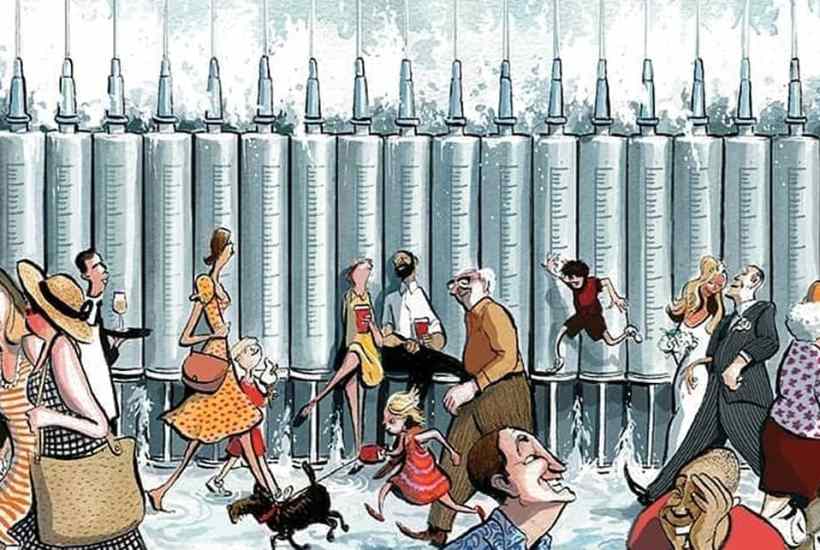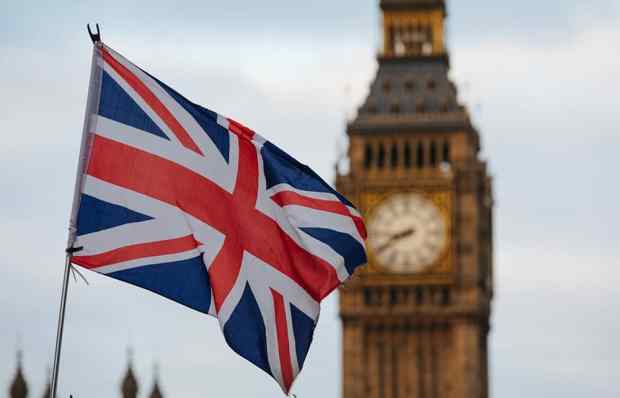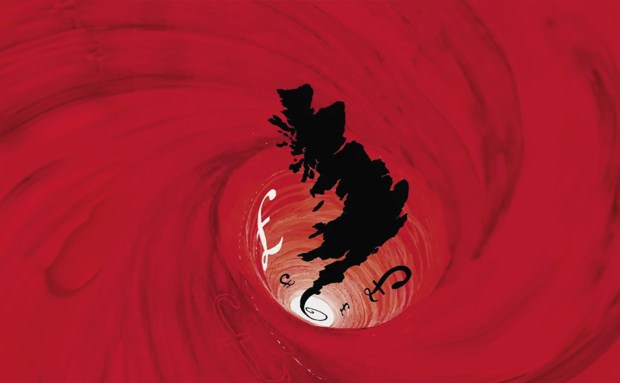There has been a considerable hoo-hah in the press about the recent World Health Organisation report estimating Covid-related deaths internationally during the pandemic. The measurement chosen has been ‘excess deaths’ – the difference between the number who died during the pandemic and the number who, on average, died in the same place before the pandemic struck. This has enabled us to compare the British figures with excess deaths across the rest of Europe per 100,000 of the population; and it appears we’re not, after all, at the top of the death-league, but near the middle.
Though its methodology has attracted serious criticism, I was struck by the report. But what really struck me has turned out to be of no interest to any of the media responses I’ve seen, which have all been about our outcome relative to those of other European countries. We did better, for instance, than Italy, Spain and Germany but worse than France – though during the pandemic we’d thought we were doing exceptionally badly.
Well, bully for us. But I find these relativities of limited interest, given that we’re mostly in the same ballpark as our near European neighbours. True, Sweden and France did much better than us, but the countries that did worse – Italy, Germany and Spain for example – had excess deaths respectively of 133, 116, and 111 per 100,000. Britain’s figure was 109. Even the United States was only 140, just ahead of Italy. Fairly small differences in the way countries count could easily alter such pecking orders.
What for me stands out is not the pecking order, but two quite different observations. Firstly, it is difficult to spot any obvious correlation between the pandemic–suppressing measures taken by different members of the WHO, and the outcomes in terms of excess mortality. This suggests we should be more tentative about what works, and probably have much still to learn about how such viruses spread. Mask-wearing was far less common in Sweden than in Britain, yet we had twice as many excess deaths, though most Swedes live in urban environments, like us. There’s a strong case for serious and exhaustive study of the role of masks involving human challenge trials, about which (to my bafflement) there seems to be some kind of academic horror.
I lost confidence in health advice from official persons and organisations when more than a year ago it was established that surface contact (touching things) is not a significant source of Covid-19 viral spread. This, I repeat, has now been known for a long time. But official advice on handwashing has not been corrected, there remain (at some economic and environmental cost) signs and hand-gel dispensers everywhere, wipes are still being distributed and cleaners are still prancing around dabbing at bannisters and hand-holds. Why should I believe a government scientific establishment on anything else, if the official advice on this has not changed?
Here, though, is the thing that should not have shocked me (because the figures were broadly known) but did (because I did not know them). Some 109 excess deaths per 100,000 in Britain may be twice Sweden’s rate – but it’s still tiny! That’s about one person in a thousand. I had not properly understood how light the casualties have been in the developed world. And though it’s sad when anyone dies at any age, the average Covid-related casualty in Britain has been in the last ten years of his or her expected life, so viewed in terms of years lost the damage is far less severe than that inflicted by epidemics that target the young as well as old.
Yes, yes, ‘one death is one death too many’ etc, and no, I didn’t know these victims personally and if I had I might feel differently. All true enough. But how I feel is not the point. We do need to be able to count. When we count dispassionately we see a pandemic that took relatively few people away. Looking at the past 30 years, the pandemic did cause a sharp year-on-year difference, but there have been others.
Yet in trying to slow its spread (we were honest about that limited ambition, unlike the Australians, New Zealanders, Chinese and South Koreans) we took a two-year wrecking ball to our economy and to the educational and job prospects, not to say the mental health, of millions of our young people.
There are two serious objections to what I’ve just remarked. Firstly, it was important to spread the spread, as it were, over a longer period to stop the NHS falling over. I agree. Herd immunity (though it became a boo-phrase) was always the thing to aim for, even if we may never quite get there, and we’ve got much further because of the vaccines, but could not know vaccines were on their way.
Secondly, it may be said that it was due to elements in our lockdown strategy that we were able to limit the casualties. This is very likely true, though we don’t really know which elements.
To this second, serious, objection, I reply that precautionary behaviour was already becoming and would fast have become the norm (indeed, it did in Sweden) without the panicky, stop-start, sometimes draconian and finally incoherent response adopted by government. There was no need for statute, no need for the police. Try to remember what exactly were the rules when Sir Keir Starmer allegedly broke them in Durham, and you’ll be reminded of the intricacy, impermanence and arbitrariness of each new set of regulations. Had we depended on social pressure and cultural change to marshal our precautions, the response would have been so much less jerky – and, importantly, so much easier for people to understand. We’d certainly have understood that outside was safer than indoors and that big sweaty gatherings could be super-spreading events, but we might not have closed schools or entangled ourselves in all the nonsense about ‘bubbles’, numbers of households or ‘essential’ as opposed to ‘inessential’ jobs.
There will be future pandemics. From this one I hope we can learn some lessons about cultural pressure as a resource, about the importance of steadiness, and about the imperative to do all we can to protect a national economy upon which, in the end, all our lives depend.
Got something to add? Join the discussion and comment below.
Get 10 issues for just $10
Subscribe to The Spectator Australia today for the next 10 magazine issues, plus full online access, for just $10.
You might disagree with half of it, but you’ll enjoy reading all of it. Try your first month for free, then just $2 a week for the remainder of your first year.















Comments
Don't miss out
Join the conversation with other Spectator Australia readers. Subscribe to leave a comment.
SUBSCRIBEAlready a subscriber? Log in